Ever wondered what makes some teams click while others struggle? The trivium of successful collaboration lies in how well team members connect, communicate, and create together. That’s where team building comes in – it’s not just another corporate hack but a genuine pathway to fostering unity within the team. Whether engaging in classic team-building exercises, exploring virtual platforms, or planning an in-person retreat, team-building activities offer fresh perspectives on working together. From energetic team-building games to thoughtful collaboration sessions, each experience builds camaraderie, transforming ordinary colleagues into extraordinary teams.

How SwagMagic can help your brand?
- Bulk Buy & Save on your gifts!
- Curate Customized Swag Boxes!
- Launch Your Store for your employees!
- Secure Swag Storage with us!
Ready to take your team dynamics to the next level? Let’s dive into how you can strengthen team communication and create lasting bonds that make work more enjoyable and productive.
Table of contents
- What is Team Building?
- Unique Team Building Ideas
- Ways to Build an Effective Team
- Places to Carry Out Team Building Activities
- Occasions for Team Building
- Importance and Benefits of Building a Successful Team
- Ideas to Choose the Right Team-Building Theme for Your Organization
- How to Measure the Success of Your Team-Building Activities
- How Can SwagMagic Help in Fulfilling Your Team-Building Requirements?
What is Team Building?
Team building is the strategic process of strengthening relationships and improving collaboration among team members through planned activities and interactions. It goes beyond regular work tasks to create meaningful connections that enhance workplace dynamics. Through structured exercises, informal gatherings, or organized events, team building helps break down barriers, improve communication patterns, and build trust. It’s about creating an environment where individuals feel connected, understood, and motivated to work together toward common goals.
Unique Team Building Ideas
Building strong teams requires creativity and purpose. From classic trust falls to innovative problem-solving challenges, team building ideas come in all shapes and sizes. The key is choosing activities that align with your group’s dynamics and goals. Whether you’re looking to improve communication, boost morale, or strengthen relationships, the right team building activity can transform a group of individuals into a cohesive unit.
Building an effective team isn’t everyone’s cup of tea, but we make it hassle-free with these unique team-building ideas.
Curate the perfect box of handpicked gift they’ll love and send joy their way
Team Building Ideas for Employees
The workplace thrives on strong team dynamics, and carefully chosen team-building activities can significantly enhance office relationships and productivity. Corporate team-building goes beyond traditional exercises, incorporating elements that directly relate to workplace challenges and goals.
These activities help break down departmental silos, improve cross-functional collaboration, and create a more engaging work environment. From problem-solving workshops to creative group projects, employee-focused team building activities can help develop essential skills while fostering a positive company culture that promotes innovation and mutual support.
Handling an entire team is a roller coaster ride, but don’t worry! We are here to guide you with the best team building ideas for employees.
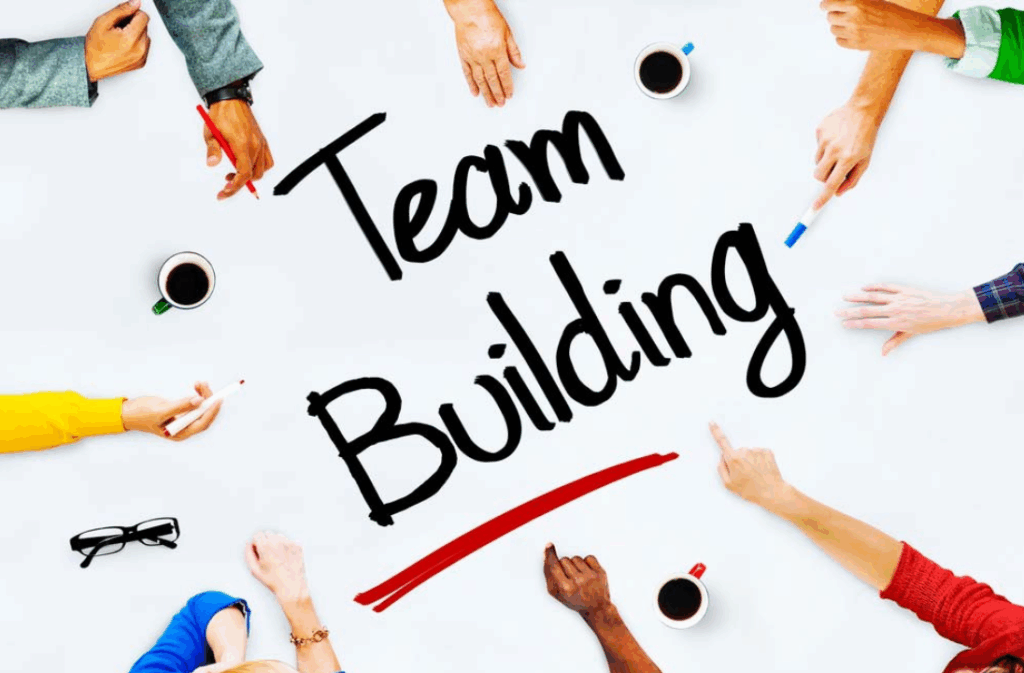
Team Building Ideas at School
Educational environments present unique team-building opportunities that can shape students’ collaborative skills for life. School-based team building activities focus on age-appropriate challenges that promote leadership, communication, and mutual respect.
These activities can be integrated into the regular curriculum or special events, helping students develop social skills while learning to work together effectively. From classroom projects to school-wide initiatives, educational team-building exercises create a supportive learning environment where students feel comfortable expressing ideas and working together toward common goals.
Messy table? Broken chairs? Are you too facing difficulty dealing with cranky and uncontrollable students? Bring them together with these motivating team building ideas at school.
Team Building Ideas for Remote Employees
The digital workplace demands innovative approaches to team building. Remote team building activities bridge the virtual gap, creating meaningful connections despite physical distance. These activities leverage technology to foster collaboration and maintain team spirit in the virtual workspace.
From online escape rooms to virtual coffee breaks, remote team building exercises help combat isolation and maintain team cohesion. These digital-first activities ensure that distributed teams remain engaged, connected, and aligned with organizational goals while building strong relationships across time zones and geographical boundaries.
Are you facing a disconnect with your remote team? Bring them together and get them going with these engaging team building ideas for remote employees.
Fun Team Building Ideas
Incorporating elements of play and enjoyment into team building yields powerful results. Fun team building activities break down barriers naturally, creating an environment where authentic connections can flourish.
These enjoyable exercises range from light-hearted games to entertaining challenges that subtly build important team skills. When teams laugh together, they build trust and stronger bonds. Creative activities like improv sessions, scavenger hunts, or themed challenges demonstrate that serious team development doesn’t have to feel serious to be effective.
The days are gray & gloomy? Want to add a pinch of salt to the day? Opt for these fun team building ideas.
Team Building Ideas for Small Groups
Small group dynamics offer unique opportunities for intense, focused team development. These intimate settings allow for deeper connections and more personalized interactions among team members.
Activities designed for small groups can address specific team challenges while giving each participant ample opportunity to contribute and engage. Whether it’s collaborative problem-solving exercises or trust-building activities, small group settings create an environment where stronger bonds can form and individual strengths can shine.
Sometimes dealing with a small group too can be troublesome. But we are here with the best team building ideas for small groups.
Team Building Ideas for Large Groups
Managing team building for large groups requires special consideration and planning. These activities are designed to create meaningful connections even within sizeable teams.
Large-scale activities often incorporate elements of friendly competition, mutual challenges, and shared experiences that can unite dozens or even hundreds of participants. From corporate Olympics to massive scavenger hunts, these activities prove that effective team building is possible regardless of group size.
Is your team procastinating? Are they not motivated enough? Organize a motivating session with these team building ideas for large groups.
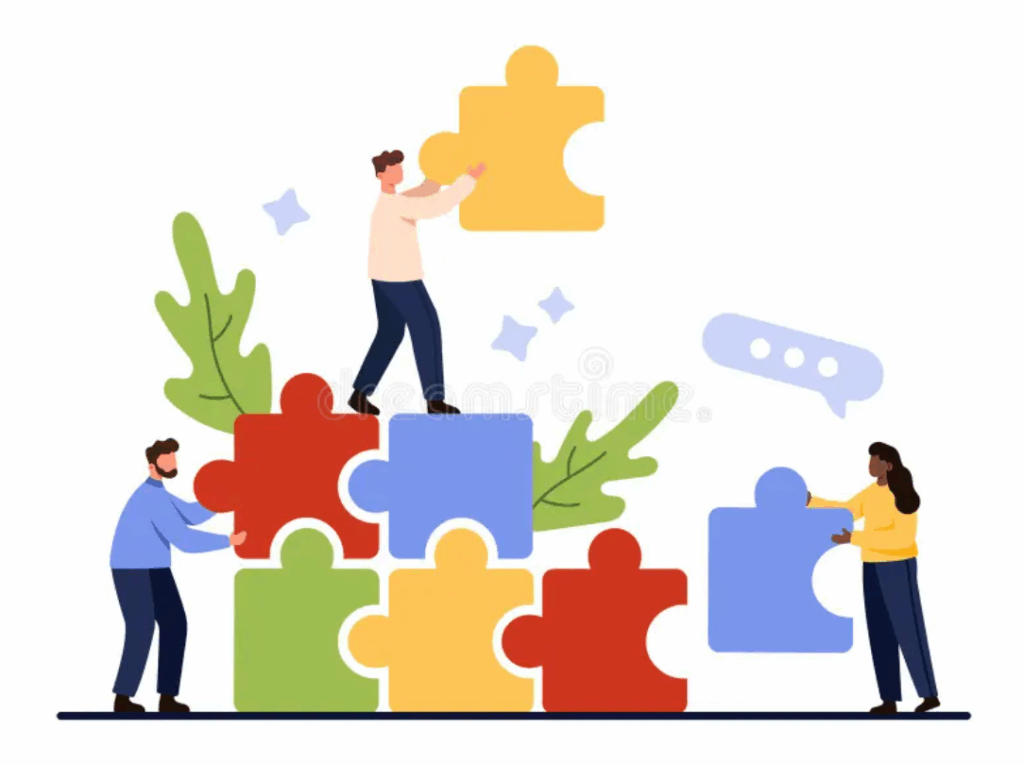
Ways to Build an Effective Team
Team building is essential for fostering collaboration, boosting morale, and creating a positive work environment. Team members working together effectively lead to increased productivity and better business outcomes. The right mix of time building games, activities, and approaches can help team collaboration while developing crucial workplace skills.
Are you looking to build a team thats motivated and result-driven? Here are the most unique ways to build an effective team
Team Building Activities & Games
For Corporate Employees Working from the Office
- Office Olympics—Transform the workplace into a fun competition zone with interdepartmental contests like paper airplane championships, desk chair races, or creative problem-solving challenges. Include scoring systems and award ceremonies to boost engagement.
- Collaborative Brainstorming – Set up regular sessions where teams tackle real business challenges. Use techniques like mind mapping, reverse brainstorming, or the “6-3-5” method, where 6 people write 3 ideas in 5 minutes.
- Monthly Team Challenges – Create themed monthly challenges focusing on business goals. For example, a “Customer Service Excellence Month” where teams compete to gather positive feedback or an “Innovation Sprint” for process improvements.
The corporate environment can sometimes be stressful. But make your team mates feel seen with these team building ideas for employees
Virtual Activities for Remote Employees
- Digital Team Challenges – Host weekly virtual challenges like online scavenger hunts where teams collaborate to find items or solve riddles. Use breakout rooms for smaller group bonding and main room for collective sharing.
- Virtual Skill Share Sessions—Schedule bi-weekly sessions in which team members teach others their expertise, from professional skills to personal hobbies. Include interactive elements like live demonstrations and group practice.
- Remote Social Hours – Organize themed virtual gatherings like “Coffee & Conversations” or “Virtual Happy Hour” with structured activities. You can even include icebreakers and group games that work well in digital formats.
Did you, too, shift to a work-from-home setup? Focus on having coffee with your team members with these virtual team-building activities.
For Students & Teachers
- Class Projects – Design long-term projects where students must collaborate across different subjects. For example, creating a mini-business that combines math, art, and communication skills.
- Inter-house Competitions – Organize year-long competitions with point systems across academic, sports, and cultural activities. Teams work together throughout the year to accumulate points.
- Student-led Initiatives – Empower students to create and manage their own projects, like organizing school events or community service programs. This builds leadership and teamwork simultaneously.
- Teacher Development Activities – Create in-person activities where teachers from different departments can share innovative teaching methods and problem-solving approaches. This improves team collaboration across faculty, helps build effective team teaching strategies, and enhances the work culture through cross-subject expertise sharing.
Don’t let the students be a part of the rat race. Show them the real world with these team building ideas you can conduct at school.
Events & Seminars
- Annual Team Summit—Plan a full-day or multi-day event that combines strategic planning, team building, and celebration. Include workshops, outdoor activities, and informal networking opportunities.
- Department Exchange Days—Create structured programs where team members spend a day in different departments, fostering cross-functional understanding and collaboration. End by following up with reflection sessions and idea sharing.
- Innovation Challenges – Launch quarterly challenges where cross-functional teams work together to solve company problems. Provide resources, mentorship, and rewards for implemented solutions.
Conduct a seminar or an event and make your employees feel valued with the best team building events ideas.
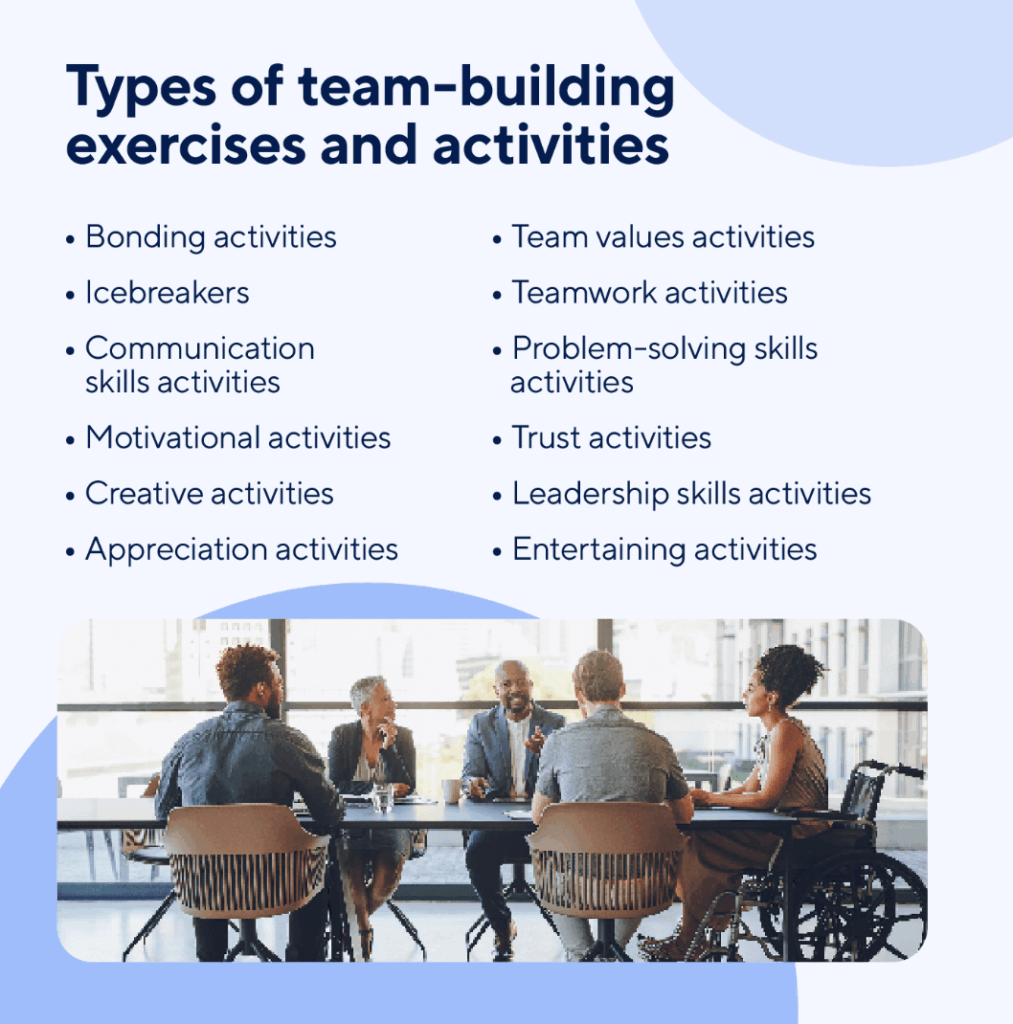
Ice Breaker Activities
- Story Circle – Each team member shares a 2-minute story about their most challenging or rewarding professional experience. Use guided questions to help people open up and connect.
- Two Truths and a Dream Goal – A variation of the classic game where people share two facts and one professional or personal goal, encouraging personal connection and future-focused thinking.
- Speed Meeting Rounds – Structure quick 5-minute conversations between pairs, with specific topics for each round. Topics progress from casual to more work-relevant discussions.
Rewards and Recognition Programs
- Experience-Based Rewards – Offer team experiences like cooking classes, escape rooms, or outdoor adventures. These create shared memories and strengthen bonds beyond the workplace.
- Achievement Milestone System—Develop a points-based recognition system where teams earn rewards for collaborative achievements. This system should include both small weekly wins and major project completions.
- Peer Recognition Platform – Implement a digital platform where team members can publicly recognize colleagues’ contributions. Include categories like “Best Collaborator” or “Innovation Champion.”
Giving Gifts & Giveaways
- Customized Products, Giveaways, & Swag– Enhance your team-building efforts with thoughtfully designed customized products that make every member feel valued and part of something special. Each item is a daily reminder of team unity, from personalized team merchandise like premium t-shirts, hoodies, and caps to professional office accessories, including custom notebooks, elegant pens, and branded mousepads. Tech accessories such as phone cases and USB drives featuring team logos, coupled with special achievement awards and trophies, create lasting memories of team accomplishments. These customized team building swag gift boxes boost morale and strengthen team identity and pride.
- Snacks Kit & Gourmet Foods- Transform team celebrations and virtual meetings with carefully curated snack kits and gourmet food selections that bring teams together through shared culinary experiences. Expertly assembled snack boxes make virtual team meetings more engaging, while local specialty food hampers celebrate regional flavors and culture. Gourmet treats offer a taste of global cuisine, perfect for cultural exchange activities. Healthy Eating Challenge prize packages encourage wellness while fostering friendly competition, and team celebration feast vouchers turn achievements into memorable dining experiences that the whole team can enjoy together.
- Company Swag Store- Implement a comprehensive company swag store that serves as a central hub for team rewards and recognition. This online platform allows team members to select quality branded merchandise of their own choice. Seasonal collections keep the offerings fresh and exciting, while limited edition items commemorate special team milestones. The store features eco-friendly branded merchandise options, reflecting corporate values and environmental responsibility.
Don’t want to go the old school and traditional way? Surprise Surprise! 🎉
Pair up your team building activites with customized Team Building Gifts and Giveaways and put a smile on their face with a personlaized swag. 🎁
Professional Development for Team Performance
- Leadership Development Programs—These programs enhance team performance by equipping members with essential leadership skills. Through goal-setting exercises and conflict resolution scenarios, they foster a cohesive team culture and strengthen team resilience.
- Communication Workshops – Build a productive work environment with workshops that enhance clear communication. Activities focused on active listening, constructive feedback, and non-verbal cues contribute to a cohesive team and improve daily interactions.
- Decision-Making & Problem-Solving Training – Improve team performance with sessions that develop critical thinking and problem-solving skills. Real-world scenarios help teams collaborate effectively, creating a strong foundation for a cohesive team culture.
Willing to retain an employee? Want to upskill and get to the new market trend?
Gift your team these Team Building Courses and enhance their overall performance.
Team Building Quotes
Building connections and helping the team grow stronger can be inspired by powerful words. As team leaders strive to lead their teams effectively, quotes can guide your team to work well together. From famous leaders to successful entrepreneurs, these motivational messages help your team feel more connected and remind everyone of their team’s purpose. Whether used in team-building activities, displayed in the workspace, or shared during team development sessions, these quotes reinforce team values and inspire members to bring their best to the whole team, creating a positive work environment where everyone can thrive together.

Places to Carry Out Team Building Activities
Indoor Venues
- Creative Spaces—Transform office areas into themed zones for different activities. With proper materials and equipment, meeting rooms can be turned into puzzle or innovation labs.
- Training Centers – Utilize professional development spaces with proper audio-visual equipment and flexible seating arrangements for various team activities and workshops.
- Entertainment Facilities—Book locations like bowling alleys or indoor sports centers that offer structured team-building packages with trained facilitators.
It is a rainy day? Or is your team conscious of going out in the sun? Don’t worry we have your back!
Make them play these indoor team building games and bring them under the same roof.
Outdoor Locations
- Adventure Parks – Organize team challenges at facilities with ropes courses, obstacle races, or climbing walls. These activities naturally build trust and communication through shared challenges.
- Retreat Centers—Book venues specializing in corporate retreats, with both indoor and outdoor facilities, accommodation, and professional team-building staff.
- Nature Locations—Plan activities in parks or nature reserves with guided team challenges, such as orienteering or nature-based problem-solving tasks.
Overactive team? Always on the toes? What’s better than opting for outdoor team building games and giving them the much needed boost.
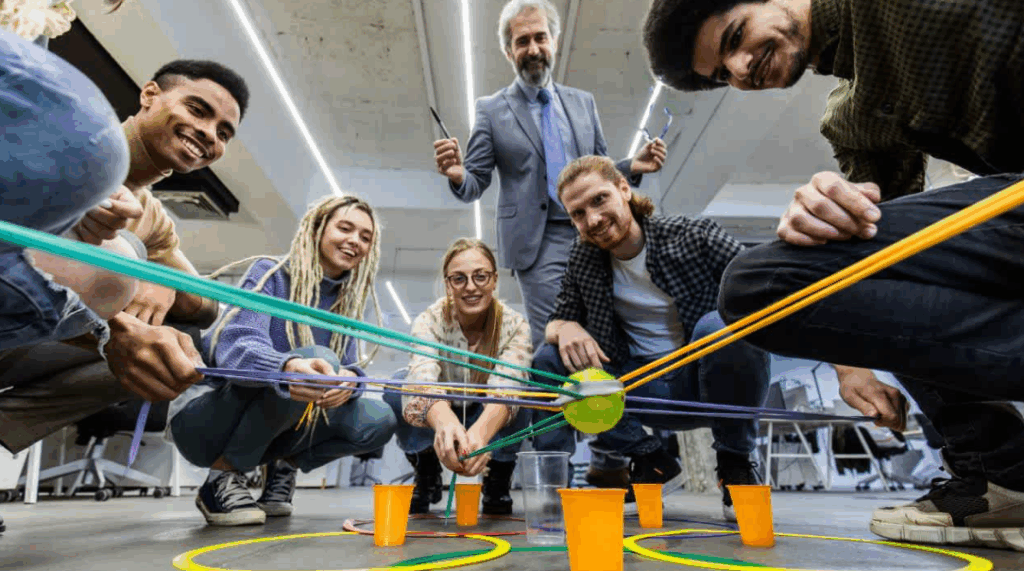
Occasions for Team Building
Company Annual Day
- Grand Team Awards (High Budget): Host a gala dinner with professional entertainment, an awards ceremony highlighting the team’s achievements, and interactive performances in which every team member participates.
- Casual Celebration (Inexpensive): Organize a potluck lunch with team-oriented games, a DIY awards ceremony, and activities designed to celebrate the year’s milestones in a fun way.
School Functions
- Annual Sports Meet – Design competitions where teams must work together with a time limit. Include both traditional sports and wildly fun adaptations of popular games.
- Cultural Festival – Showcase various types of talents through inter-class performances, encouraging verbal and non-verbal communication among students.
Employee Appreciation Day
- Monthly Recognition (Regular) – Schedule smaller celebrations outside of work hours with team-building activities designed to enhance bonding.
- Quarterly Bash (Special) – Plan larger events where teams showcase their achievements and participate in challenges that foster a sense of unity.
Holiday and Festive Season
- Year-End Celebration – Combine reflection on team goals with festive activities, allowing everyone’s contributions to be recognized.
- Cultural Exchange Events – Share traditional celebrations, fostering understanding and team cohesion.
Personal Milestone
- Birthday Celebrations—Transform regular birthdays into fun team-building activities that bring people closer together. Organize creative team challenges or virtual team-building sessions for remote workers. These activities can help strengthen bonds while celebrating individual team members.
- Wedding Festivities—Get your team involved in pre-wedding celebrations through team-building games and activities that bring your team closer. Plan in-person team-building events like group dance practices or collaborative gift-making sessions that encourage team participation.
- Home Ownership—Lead your team in welcoming new homeowners through activities that help make the transition special. Organize team-building activities like group home decoration projects or virtual housewarming parties that keep your team connected during personal milestones.
Professional Milestone
- Work Anniversaries—Build effective team-building moments around service milestones. Team-building activities include activities where colleagues share stories and memories, bringing the marketing team and other departments together to celebrate loyalty. Games are a great way to make these celebrations memorable while reinforcing team purpose.
- Retirement Celebrations – Lead a team effectively, honoring departing colleagues through activities that help preserve institutional knowledge. Team-building activities can help create lasting memories through fun activities like “career highlight” presentations or team problem-solving challenges that showcase the retiree’s expertise.
- Target Achievement – When the team takes significant wins, bring your team together through strategic activities for work. Encourage your team through great activities recognizing individual and collective achievements. Team-building activities at work might include interactive presentations where team members share their success strategies, fostering a culture where the team or organization continues to excel.

Importance and Benefits of Building a Successful Team
- Enhanced Communication & Trust- Games are a great way to break down communication barriers. While team building doesn’t require complex setups, it naturally creates an environment where team members develop trust through shared experiences and open dialogue. Activities and games help foster authentic connections that translate into better workplace collaboration.
- Strengthened Physical & Mental Wellbeing—Ask your team to participate in sports activities or active challenges that combine physical wellness with team bonding. These activities are great for reducing workplace stress, improving mental health, and creating a more balanced work environment. Online team-building options can also incorporate wellness elements for remote teams.
- Accelerated Skill Discovery- Give your team opportunities to showcase hidden talents through diverse activities. This helps identify and leverage individual strengths, allowing leaders to understand their team’s capabilities better and align tasks for optimal performance. A successful team emerges when members recognize and appreciate each other’s unique abilities.
- Advanced Problem-Solving- Activities and games designed around collaborative challenges help teams develop stronger decision-making abilities. When you require team members to think creatively and work together, they build essential problem-solving skills that directly benefit workplace projects and innovations.
- Improved Morale & Job Satisfaction—Regular team-building activities are great for maintaining high spirits and workplace satisfaction. These sessions provide celebration, recognition, and casual interaction opportunities, moving beyond routine tasks to create genuine connections and boost team motivation.
- Elevated Environmental & Social Awareness- Outdoor team building doesn’t just foster team bonds – it can also promote environmental consciousness. Similarly, activities that unite diverse team members help build social awareness and create a more inclusive workplace culture where every voice matters.
- Optimized Work Culture- A thriving team culture emerges when members regularly engage in shared experiences. Online team building and in-person activities help create an environment where collaboration flows naturally and productivity increases through stronger interpersonal relationships.
- Developed Leadership Skills- Activities are great opportunities for team members to take turns leading different challenges. This rotating leadership approach helps develop new skills and allows everyone to understand other perspectives and management styles.
- Reduced Stress Management- Building games is a great way to relieve stress and create team support systems. Whether through sports team activities or casual social gatherings, these experiences help team members develop healthy ways to manage workplace pressure.
- Sustained Long-term Growth- Give your team regular opportunities for development through structured team building. This consistent investment in team relationships and skills improves communication, problem-solving, and collaborative efficiency, leading to sustainable organizational success.
After all these activities and ideas you must be thinking about the benefits?
Learn more about the team building benefits.
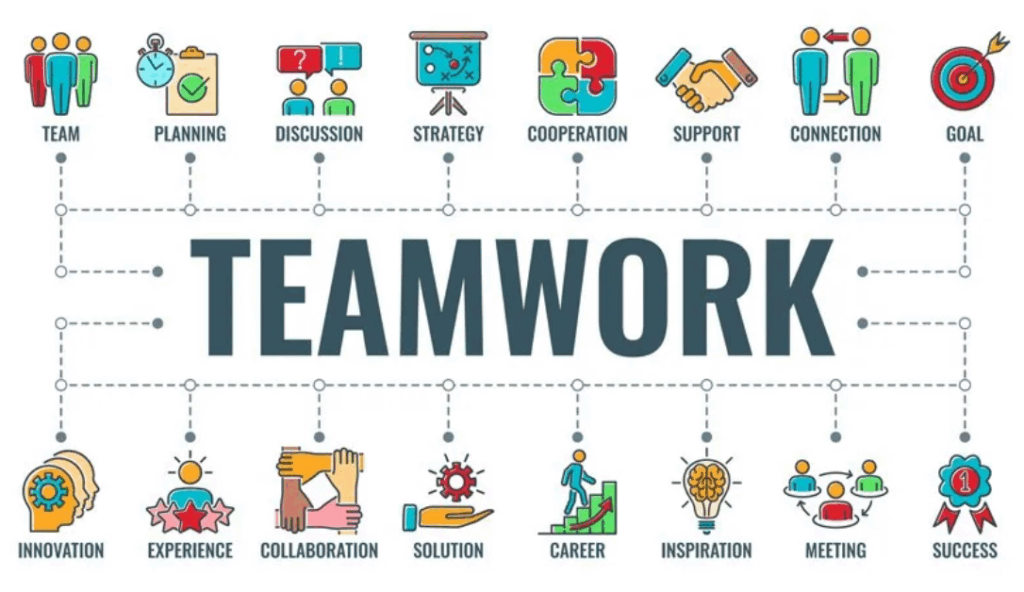
Ideas to Choose the Right Team-Building Theme for Your Organization
- Assess Team Dynamics and Interests: Understand how your team comes together naturally before activities are designed. Observe group dynamics during regular work hours—are they more competitive or collaborative? Does pop culture interest them, or do they prefer intellectual challenges? This initial assessment helps choose themes that will genuinely engage individual members.
- Consider Company Culture and Values: Align activities with your organization’s core values and culture. If your company prioritizes innovation, create themes around creative problem-solving. For sustainability-focused organizations, incorporate environmental consciousness into team-building events.
- Determine Activity Goals: Set clear objectives before any planning begins. Are you aiming to improve communication between team members? Build trust? Enhance problem-solving skills? When HR and leadership clearly define goals, measuring success becomes easier as time passes.
- Evaluate Resources and Budget: Consider both financial and logistical constraints. While high-budget events can offer opportunities for elaborate experiences, don’t underestimate how creative, low-cost alternatives can be equally effective at bringing people together.
- Choose Activity Settings: Based on your team’s diverse needs, choose between indoor and outdoor venues. Consider weather, accessibility, and the type of interaction you want to encourage. Sometimes, a simple change of environment can prevent activities from becoming stale.
- Focus on Inclusivity: Ensure all team members can participate comfortably. Consider physical abilities, cultural sensitivities, and personal preferences. The goal is to unite, not disperse the team.
- Gather Team Input: Who doesn’t love being asked for their opinion? Survey your team about their preferences and interests. This involvement creates buy-in and ensures higher engagement during the actual event.
- Learn from Past Success: Review previous team-building events. What worked well? What could be improved? Use these insights to refine future activities and avoid repeating less successful elements.
- Balance Entertainment and Purpose: While fun is essential, ensure activities also serve meaningful purposes. Even lighthearted games should contribute to building resilient team relationships.
- Plan Follow-up Activities: Create a strategy for reinforcing lessons learned through regular debriefing sessions and smaller follow-up events.
Do you want to know the companies that guide you through the selection process of your theme?
Learn about the team building companies here.

How to Measure the Success of Your Team-Building Activities
Evaluating the impact of team-building activities is essential for understanding their effectiveness and ensuring they contribute to a productive, cohesive team. By setting clear goals, gathering feedback, and tracking key performance indicators, you can determine how well these activities enhance team dynamics and overall success.
- Set Clear Objectives—Start by defining specific, measurable goals for each activity, such as enhancing collaboration, increasing productivity, or boosting morale. With clear objectives in place, assessing whether the activities deliver the desired impact becomes easier.
- Gather Honest Feedback – Collect feedback from participants through anonymous surveys and open discussions to gain insights into both immediate reactions and long-term effects on team dynamics. This helps capture how the activity truly influenced the group.
- Observe Changes in Team Interactions—Monitor how team members interact and collaborate after the activity. Look for signs of improvement, such as more open communication, smoother collaboration, and stronger problem-solving as a team.
- Track Engagement Levels – Engagement metrics like participation rates and enthusiasm are key indicators of success. If team members are eager to participate in future activities, it suggests the experience was meaningful and positively received.
- Connect Activities to Performance Metrics – Link the outcomes of team-building activities to measurable business goals. For example, improvements in project completion rates, customer satisfaction, or problem-solving efficiency can reflect a successful team-building effort.
- Assess Morale and Retention Trends – Regularly check team morale and turnover rates to see if team-building efforts are making a lasting impact. Increased job satisfaction and reduced turnover show that activities support a positive, cohesive team environment.

How Can SwagMagic Help in Fulfilling Your Team-Building Requirements?
SwagMagic offers a unique and comprehensive bouquet of services to fulfill your team-building requirements through
- Engaging Team Events
- Custom Swag
- Curated Snack Experiences, and
- Kudos Platform for Peer to Peer Recognition
By prioritizing connection and collaboration, we help create a cohesive team culture that enhances overall team performance. Let us assist you in elevating your team-building initiatives and fostering a productive work environment.
Team Building Events
We offer a comprehensive team-building platform where activities are designed to foster genuine connections and enhance group dynamics. From virtual cooking classes to escape rooms, every event encourages team members to collaborate, communicate, and think outside the box. The platform caters to diverse needs, offering in-person and virtual team-building experiences that don’t become stale over time. Professional facilitators ensure each session runs smoothly, while debriefing sessions help teams reflect on their learning. Who doesn’t love an expertly curated experience that brings people together while achieving meaningful team goals?
Custom Swag and Promotional Merch
SwagMagic transforms traditional corporate merchandise into thoughtful, high-quality items that team members actually want to use. As time runs, these carefully selected products serve as daily reminders of team unity and company culture. Each piece offers opportunities to strengthen brand connection and employee pride, from eco-friendly water bottles to premium apparel.

The platform provides end-to-end customization, ensuring every item aligns with your company’s values while meeting individual members’ preferences, making each unboxing experience special and memorable.
Snack Kits
Reimagines team bonding through curated snacking experiences that cater to every taste and dietary requirement. These customizable snack boxes disperse joy across remote and in-office teams, creating shared experiences even when teams can’t be physically together. Whether for regular team treats, special celebrations, or virtual tasting events, SnackMagic’s diverse selection helps maintain team spirit through the universal language of food. The platform considers KPIs like dietary preferences, international palates, and sustainability concerns, ensuring every team member feels included and valued.
Company Branded Stores
We use a centralized, customizable corporate store/shop to transform how organizations handle team building and recognition. This specialized service enables businesses to build their own personalized gift store, where workers can choose from selected branded products. The platform allows for constant brand representation while remaining flexible to trends and changing team demands. Businesses can manage their goods offerings from corporate swag to seasonal collections in one location.
Employee Recognition Platform
We revolutionize how organizations manage their team-building and recognition resources through a centralized, efficient platform. This platform helps HR teams streamline everything from employee rewards to team-building supplies. Organizations can track, distribute, and administer recognition programs for individual accomplishments, team milestones, or company-wide events. With features designed for both small and large organizations, Stadium ensures resilient management of all company merchandising needs, peer-to-peer recognition, employee appreciation, and employee appreciation gifts.
Ready to enhance your team’s dynamics?
Contact us today to explore how SwagMagic can support your goals!


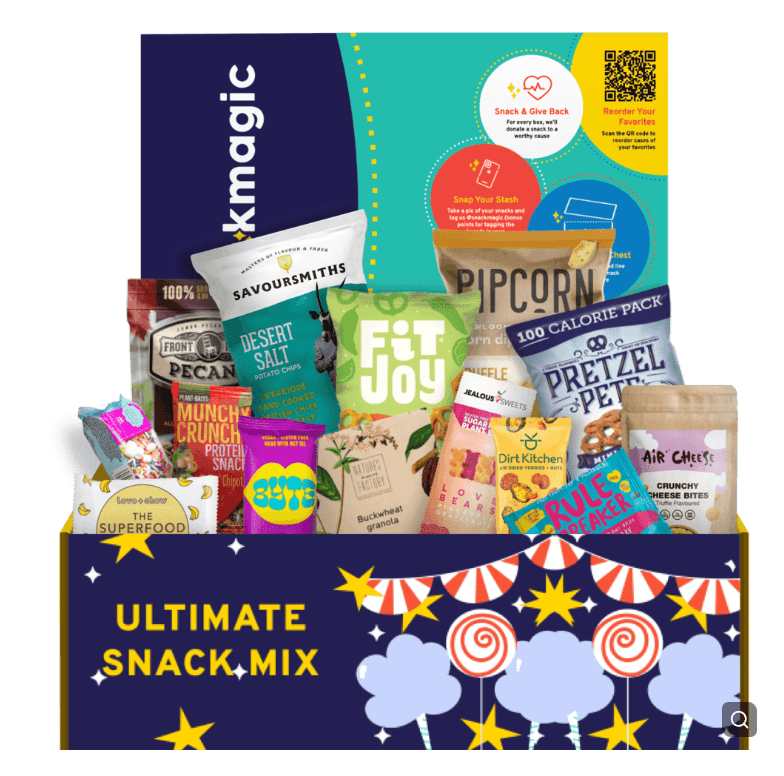

Leave a Comment